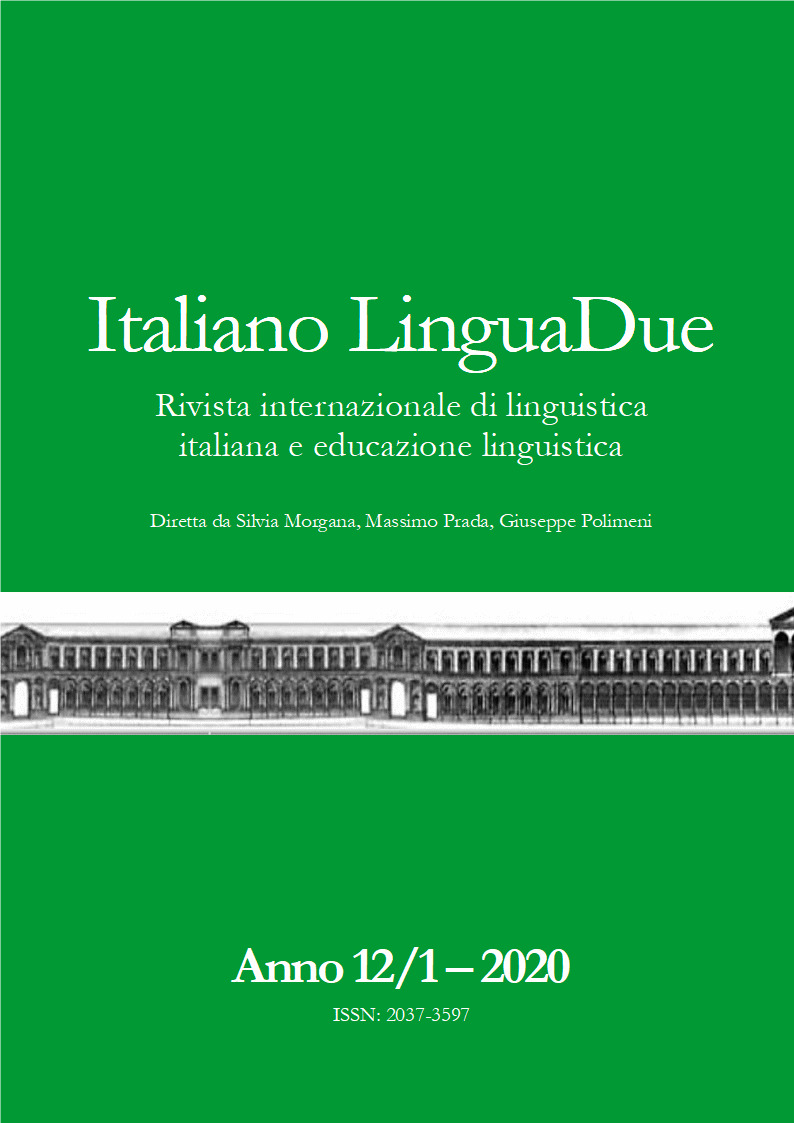INTERAZIONE ONLINE: UNA SPERIMENTAZIONE ITALIANA
DOI:
https://doi.org/10.13130/2037-3597/13948Abstract
Considerando l’importanza della dimensione digitale e multimediale per sostenere e valorizzare il processo di insegnamento e apprendimento nelle scuole del XXI secolo, il Ministero dell’Istruzione italiano e l’Istituto Nazionale per la Documentazione, l’Innovazione, la Ricerca Educativa (INDIRE) hanno sviluppato un progetto pilota volto a sperimentare e osservare l’utilizzo dei descrittori “Interazione online” e “Collaborare in gruppo” del Companion Volume. Il progetto pilota è stato attivato nel 2018 in nove regioni italiane dove 20 insegnanti di lingua inglese (più alcuni docenti CLIL) sono stati invitati a progettare e sperimentare attività CLIL online nelle loro classi, preferibilmente all’interno di progetti internazionali a distanza. Seguendo linee guida proposte dai coordinatori del progetto tramite concept papers e riunioni online, gli insegnanti hanno pianificato e implementato compiti molto creativi e innovativi finalizzati a facilitare le interazioni online in inglese tra gli studenti. Al termine del progetto pilota, i risultati di un questionario, adattato da un modello fornito dal Consiglio d’Europa, hanno evidenziato che i docenti hanno valutato positivamente l’esperienza in quanto era stata offerta l’opportunità non solo di riflettere sulle strategie di apprendimento e comunicazione dei loro studenti, ma anche di migliorare le loro modalità di insegnamento e le loro tecniche collaborative.
Online interaction: an Italian experience
Considering the importance of digital and multimedia dimensions in supporting and enhancing teaching and learning process in 21st century schools, the Italian Ministry of Education and the National Institute for Documentation, Innovation, Educational Research (INDIRE), developed a pilot project aimed at testing and observing the descriptors “Online Interaction” and “Collaborating in a Group”. The pilot project was carried out in 2018 in nine Italian regions where 20 English language teachers (plus some CLIL subject teachers) were asked to design and test activities in their classes involving online CLIL-oriented tasks, preferably within online international projects. Following the project coordinators’ guidelines offered by concept papers and online meetings, the teachers planned and implemented very creative and innovative tasks, facilitating online interactions among students in English. At the end of the pilot project, the results of a questionnaire, adapted from a template provided by the Council of Europe, showed that teachers considered the experience positively because they were offered the opportunity not only to reflect on their students’ learning and communication strategies, but also to strengthen their own teaching and collaborative techniques.




